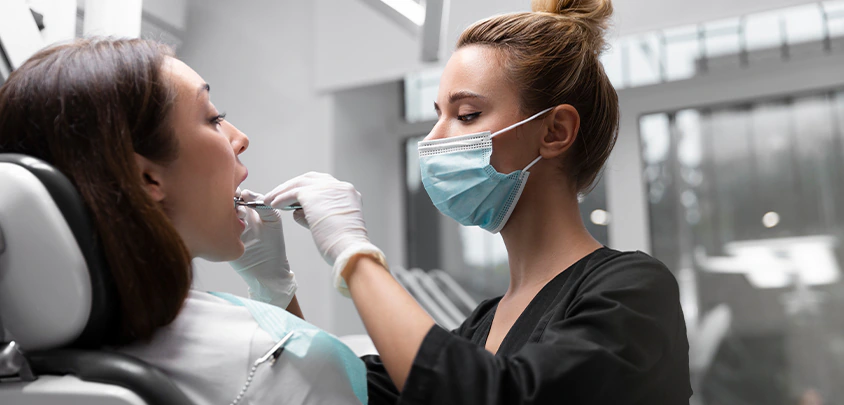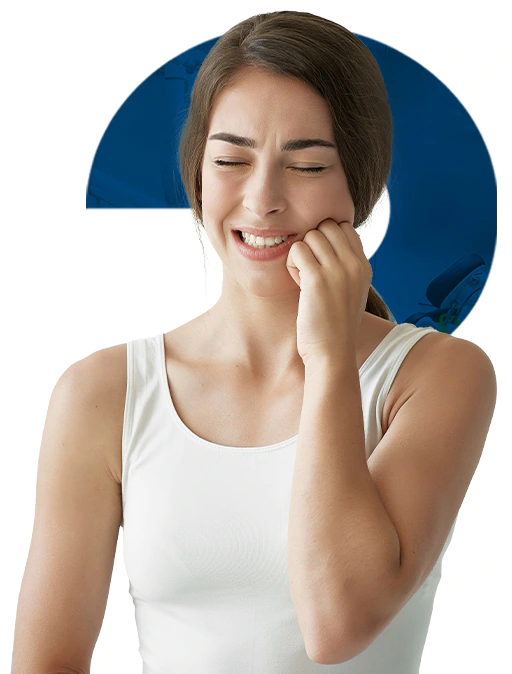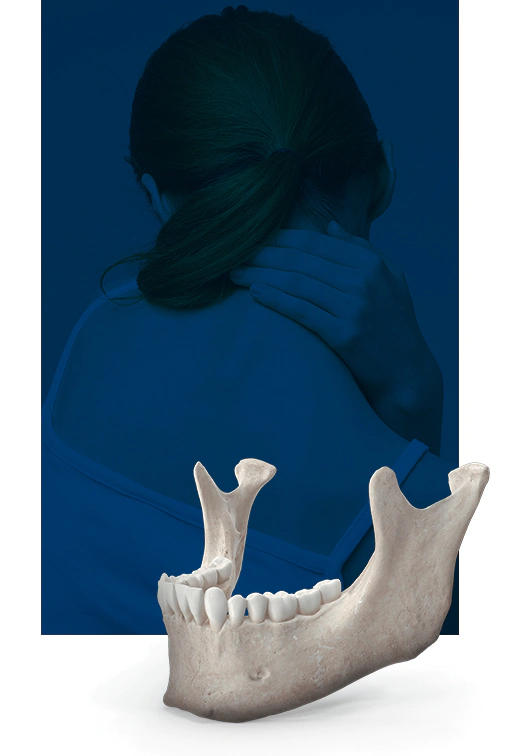What Is Temporomandibular Joint Disorder (TMJ, TMD)?
Temporomandibular joint disorder—also called TMJ or TMD—describes a group of conditions that affect the jaw joint and muscles in your face. The temporomandibular joint (TMJ) is the main cause of pain in these cases. These joints connect the lower jaw (mandible) to the skull. Located on each side of your head, your jaw joints work together so you can do simple, everyday things like chewing your food, swallowing your favorite drink, or speaking to a friend.

What are the Symptoms
of TMD/TMJ Syndrome?
TMJ/TMD symptoms include jaw-joint pain, facial pain, difficulty moving the jaw joint, neck pain, and headaches. Patients often experience clicking and/or popping of their temporomandibular joints. Some patients with TMJ disorders can even experience difficulty opening their mouth all the way, and have trouble with every day activities like chewing gum.
There is no singular cause for TMJ/TMD. Trauma to the jaw or face is believed to play a role in the development of this condition, but the below conditions are also contributors to the development of TMJ:

What Causes TMJ/TMD?
Osteoarthritis: Over time, joints become prone to arthritis—this is no different for the jaw joint.
01
Rheumatoid arthritis: Inflammation in the TMJ can cause cartilage to break down, and jaw joints become susceptible to erosion.
02
Bruxism (Grinding): Teeth grinding can cause teeth to wear down and become misaligned, causing chewing muscles to change and accelerate the wear of jaw joint surface.
03
Clenching: Stress is often associated with clenching, which can cause symptoms like facial pain, discomfort around the jaw joint, and headaches.
04
Regardless of its specific cause, TMJ/TMD affects millions of people.
What Treatment Options Exist
for Temporomandibular Joint Disorder?
TMJ/TMD treatment usually follows a “less is often best” approach. This treatment approach recommends:
- Eating softer foods
- Avoid chewing gum
- Utilizing heat packs and jaw exercises
- Practicing relaxation techniques
- Reducing stress when possible
- Wearing a night guard or bite plate if TMJ pain is suspected from clenching or grinding of teeth
- Utilizing medications like muscle relaxants and/or analgesics

